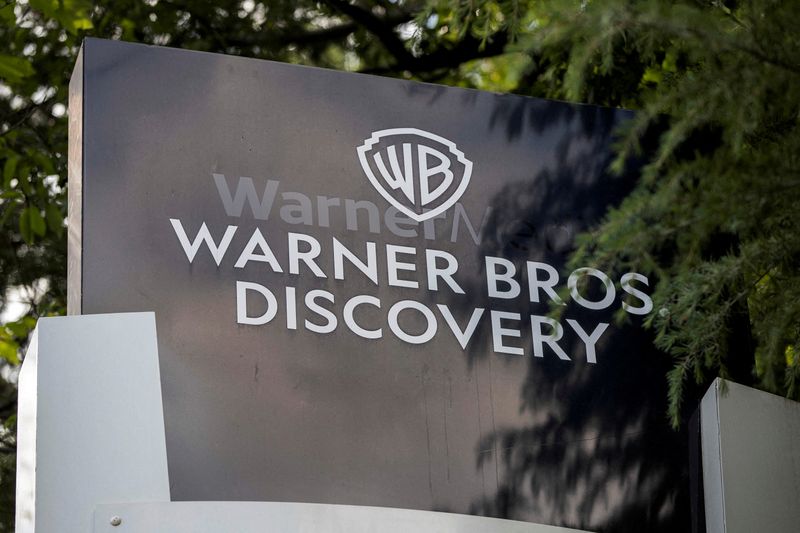By Dawn Chmielewski and Harshita Mary Varghese
(Reuters) – Warner Bros Discovery (NASDAQ:WBD) CEO David Zaslav anticipates a friendlier environment for deal-making under the incoming Trump administration, opening the door to industry consolidation, he said on Thursday.
“That would provide real positive and accelerated impact on this industry that’s needed,” Zaslav told investors on a conference call after the company released quarterly earnings. He was referring to the election of Donald Trump as U.S. president on Wednesday. The Republican defeated Democratic candidate Kamala Harris.
Strict antitrust policies under the Biden administration have weighed on deal-making across industries over the past few years, limiting the options for media companies.
Zaslav told investors the entertainment and broadcasting industry was ripe for consolidation, which would improve consumer experiences in streaming as various services are combined into more coherent offerings.
Warner Bros Discovery shares were up 11% on Thursday afternoon. The stock has lost about a quarter of its value so far this year.
“In general, Trump favors deregulation,” said eMarketer television and streaming analyst Ross Benes. “That will increase the odds of more M&A. But most large media M&A deals in recent history have turned out poorly for employees and investors.”
Warner Bros Discovery and its peers are navigating through what Zaslav described as a “generational disruption,” confronting an erosion of its lucrative television business as millions of consumers migrate to streaming video services.
A new regulatory filing reveals Zaslav had engaged in merger discussions with Paramount Global last December, though a deal never materialized. The company also explored a plan to split its streaming and studio businesses from its television networks.
In August, Warner Bros Discovery wrote down the value of its television assets by $9 billion. Paramount Global followed suit, taking a $5.98 billion charge for its television networks that same month. As recently as last month, Comcast (NASDAQ:CMCSA) said it was weighing spinning off its cable networks into a separate company, a strategy the Walt Disney (NYSE:DIS) Co earlier this year evaluated and rejected.
OLYMPICS BOOSTS STREAMING
Earlier on Thursday, Warner Bros Discovery reported a surprise quarterly profit, helped by cost controls and an Olympics-driven record jump in streaming subscribers that made up for a lack of major box-office hits from its studio.
The company’s Max streaming platform expanded into Europe weeks before the Olympic Games in Paris with exclusive rights to stream the showcase sporting event, boosting subscribers.
Max also benefited from bundling the platform with Disney+ and Hulu, as well as the strong first season of “The Penguin” – a crime drama series released in September and based on a popular DC Comics villain.
Warner Bros Discovery’s streaming business, home to the Max and Discovery+ services, added 7.2 million direct-to-consumer subscribers in the third quarter, beating estimates for 6.28 million additions, according to data compiled by Visible Alpha.
Max delivered its strongest quarterly subscriber gain since the platform’s launch, Zaslav said, calling it “a meaningful moment” that had capped two years of building the service and reversing millions of dollars in losses.
The streaming unit’s adjusted earnings before interest, taxes, depreciation and amortization more than doubled from a year earlier to $289 million, aided by lower content expenses.
The company made progress in controlling costs, with expenses falling 5.5% in the quarter ended Sept. 30. That helped it report a surprise profit of 5 cents per share. Analysts had expected a loss of 9 cents, according to LSEG.
Revenue at the TV networks division, which includes Discovery Channel, Animal Planet and Food Network, rose 3% to $5 billion. Revenue at WBD’s studio segment fell 17%, pulling total revenue of $9.62 billion below estimates of $9.80 billion.
With releases such as “Beetlejuice Beetlejuice” in the July-September quarter, WBD’s studio division has struggled to repeat last year’s success of “Barbie,” the highest-grossing film of 2023.

